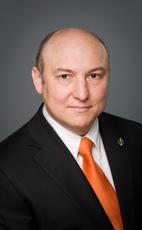Mr. Speaker, I would like to thank my colleague from Alfred-Pellan. I especially want to thank her for explaining what happened in committee because we are not necessarily privy to what happens at every meeting. She spoke of the abysmal process in committee.
That reminds me, for example, of the Standing Committee on Human Resources, Skills and Social Development and the Status of Persons with Disabilities, where the deposition of the minister who appears before the committee is considered to be that of an actual witness, whereas in reality it is just the minister's statement.
I am pleased that she explained this flaw in the system and the Conservatives' use of this absolutely dishonest method.
I also thank her for reminding us that Bill C-44 was drafted before the incidents that took place in Saint-Jean-sur-Richelieu and elsewhere.
That incident directly concerns my riding and so I would like the member to remind us that Martin Couture-Rouleau, who was dealing with mental health issues, was already being monitored by the RCMP. He was assessed just a few months before he committed this crime. In the assessment, the RCMP concluded that he was no longer a threat.
Can my colleague explain how amending a law that governs CSIS would not have prevented this tragedy or changed it in any way? In fact, this person was already being monitored, he had been assessed and the assessment had concluded that he was no longer a threat.

